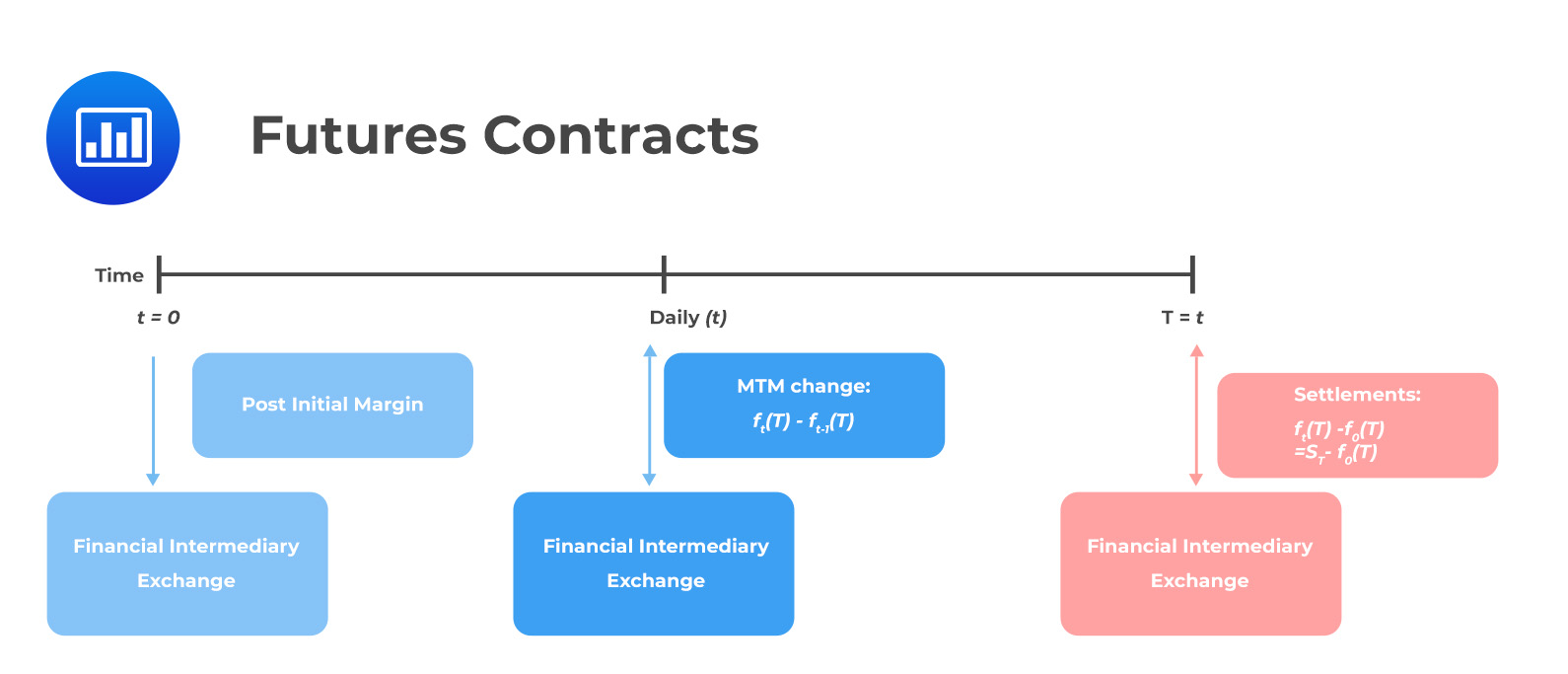

Finance
What Is The Best Insurance To Sell?
Published: November 20, 2023
Looking to sell insurance? Learn about the best insurance products to sell in the finance industry and maximize your earning potential.
(Many of the links in this article redirect to a specific reviewed product. Your purchase of these products through affiliate links helps to generate commission for LiveWell, at no extra cost. Learn more)
Table of Contents
Introduction
When it comes to working in the insurance industry, one question that often arises is, “What is the best insurance to sell?” With a wide range of insurance options available, it can be challenging to determine which one is the most lucrative and in demand. However, by understanding the needs and preferences of consumers, as well as market trends, you can gain insights into the most promising insurance products to focus on.
The insurance industry plays a vital role in safeguarding individuals, families, and businesses from financial risks. It provides financial protection and peace of mind in uncertain times. From health insurance to auto insurance, life insurance to homeowners insurance, the market is diverse, reflecting the various aspects of people’s lives that they want to protect.
Before delving into the specifics of each insurance product, it’s important to note that the best insurance to sell ultimately depends on several factors. These factors include your expertise, target market, geographical location, and current market conditions. What might be highly sought-after in one region may not have the same demand in another.
That being said, let’s explore some of the most popular and profitable insurance products:
Health Insurance
Health insurance is a fundamental type of coverage that individuals and families require to protect themselves against medical expenses. It provides financial support for doctor visits, hospital stays, prescription medications, and other healthcare services. With the rising cost of healthcare, the demand for comprehensive health insurance has been steadily increasing.
When selling health insurance, it is crucial to understand the different types of plans available, such as Health Maintenance Organization (HMO), Preferred Provider Organization (PPO), and Exclusive Provider Organization (EPO). Each plan has its own benefits and limitations, so it is important to tailor the coverage to the needs of the individual or family.
Additionally, staying up to date with changes in healthcare legislation and regulations is vital. This allows insurance agents to accurately advise clients on the best options available to them. Selling health insurance requires strong interpersonal skills to effectively explain complex policies and answer the questions and concerns of potential customers.
Furthermore, with the increasing focus on preventive care and wellness, insurance products that offer additional benefits, such as coverage for gym memberships or wellness programs, can be attractive to customers. These additional perks can be a differentiating factor when selling health insurance policies.
It is worth noting that selling health insurance can be a challenging endeavor due to the competitive nature of the industry. Building relationships with healthcare providers and understanding their networks can provide a competitive edge. Continuously educating yourself on changes in the healthcare landscape and new insurance offerings will help you stay ahead in this dynamic market.
Life Insurance
Life insurance is a crucial form of coverage that provides financial protection for loved ones in the event of a policyholder’s death. It serves as a safety net for beneficiaries, helping them cover expenses like funeral costs, outstanding debts, and loss of income. With the increasing awareness of the importance of life insurance, it remains a significant and sought-after insurance product.
One of the main advantages of selling life insurance is the ability to offer tailored coverage options to individuals and families. Different types of life insurance, such as term life insurance and whole life insurance, cater to various needs and financial goals. Term life insurance provides coverage for a specific period, while whole life insurance offers coverage for the policyholder’s entire life, in addition to building cash value.
When selling life insurance, it is essential to educate clients about the benefits and financial security it provides. Helping individuals determine the appropriate coverage amount based on their needs, age, and financial circumstances is crucial in ensuring a valuable policy. Additionally, explaining policy features, such as riders for critical illness or disability, can offer added protection and peace of mind.
Prospecting and networking play a vital role in selling life insurance. Building relationships with potential clients and referral sources, such as financial advisors or estate planners, can lead to a steady stream of leads. Understanding the importance of maintaining existing policyholders and providing exceptional customer service is also key in this industry.
Moreover, staying informed about market trends and new life insurance products and options is crucial to adapt to changing customer preferences. For example, customers may be interested in life insurance policies that offer living benefits, such as accelerated death benefits or long-term care riders.
Lastly, being empathetic and sensitive when discussing life insurance is essential. Recognizing that it is a delicate topic and guiding clients through the process with compassion can make a significant difference in building trust and closing sales.
Auto Insurance
Auto insurance is a mandatory requirement for vehicle owners, making it a staple insurance product in the market. It provides coverage for damages or injuries caused by accidents, theft, or natural disasters involving automobiles. The high demand for auto insurance stems from it being a legal requirement and the need for financial protection in the event of unforeseen incidents on the road.
When selling auto insurance, it is important to understand the different coverage options available. These can include liability coverage, collision coverage, comprehensive coverage, uninsured/underinsured motorist coverage, and medical payments coverage. Educating potential customers about these coverage types and helping them choose the right level of protection based on their needs and budget is crucial.
Prospecting for auto insurance clients can be accomplished through various channels, including referrals from satisfied policyholders, partnerships with auto dealerships, and online marketing efforts. Utilizing technology to provide quick and accurate quotes can also help attract and convert leads.
Another aspect to consider when selling auto insurance is understanding the factors that affect pricing. These factors include a person’s driving history, age, make and model of the vehicle, and location. Being able to explain how these factors influence premium rates and offering competitive pricing can help stand out in a crowded market.
Staying up to date with industry changes, such as new regulations or advancements in automobile technology, is crucial for auto insurance agents. This knowledge allows them to provide accurate information to customers and ensure they are adequately covered for any potential risks.
Lastly, providing excellent customer service and being responsive to customer inquiries and claims can make a significant impact in establishing long-term relationships with policyholders. Satisfied customers are more likely to refer friends and family, contributing to the growth of an auto insurance business.
Homeowners Insurance
Homeowners insurance is an essential form of coverage that protects one of the most valuable assets for individuals and families – their homes. It provides financial protection against damages or losses due to perils such as fire, theft, vandalism, and natural disasters.
When selling homeowners insurance, it is important to emphasize the importance of this coverage for homeowners. It not only protects the physical structure of the home but also provides liability coverage in case someone is injured on the property.
Understanding the different coverage options available in homeowners insurance is key to successfully selling this product. This can include dwelling coverage, which protects the structure of the house, as well as coverage for personal belongings, additional living expenses, and liability coverage. Educating potential customers about the specific coverage inclusions and exclusions helps them make informed decisions.
Prospecting for homeowners insurance clients can be done through various methods. Building relationships with real estate agents, mortgage lenders, and property management companies can provide a steady stream of referrals. Utilizing online marketing strategies, such as search engine optimization and social media advertising, can also attract homeowners in need of insurance.
When selling homeowners insurance, it is important to assess the unique needs and circumstances of each homeowner. Factors such as the age of the home, its location, and the homeowner’s lifestyle can all affect the type and amount of coverage needed. Tailoring the policy to align with these specific needs can help homeowners feel more secure and confident in their coverage.
Staying informed about industry trends and changes in the housing market is essential for homeowners insurance agents. This knowledge allows them to offer guidance on coverage options that may be relevant to current market conditions, such as coverage for home renovations or eco-friendly features.
Lastly, providing exceptional customer service and being readily available to answer questions or assist with claims is crucial in building trust and maintaining customer loyalty. Building lasting relationships with policyholders can lead to long-term success in selling homeowners insurance.
Disability Insurance
Disability insurance is a crucial form of coverage that protects individuals against the risk of losing income due to a disabling injury or illness. It provides a source of replacement income should individuals become unable to work and earn a living. Disability insurance ensures financial stability during challenging times and offers peace of mind to policyholders.
When selling disability insurance, it’s important to highlight the importance of this coverage, as the risk of disability is often overlooked. Many individuals underestimate their likelihood of experiencing a disability during their working years. By educating potential clients about the potential financial risks and the benefits of disability insurance, agents can highlight the value of this coverage.
Understanding the different types of disability insurance policies is vital. There are short-term disability policies that provide coverage for a limited period of time, typically for the first few months of a disability. Long-term disability policies offer coverage for an extended duration and may continue until retirement age. Having a thorough knowledge of the policy terms, waiting periods, and benefit periods helps agents provide appropriate recommendations to potential customers.
Prospecting for disability insurance clients can be done through various channels. Partnering with financial advisors, human resources professionals, and industry-specific networks can help generate leads. Raising awareness through educational content and participating in community events can also be effective in reaching individuals who may have a need for disability insurance.
When selling disability insurance, it is important to understand the specific needs and circumstances of each client. Factors such as occupation, current health status, and financial obligations will determine the appropriate coverage amount and policy features. Tailoring the coverage to match the client’s unique needs will provide them with a comprehensive and valuable insurance solution.
Staying updated with changes in disability insurance policies and industry regulations is crucial. This knowledge allows agents to provide accurate information and assist clients in navigating the complexities of disability insurance claims and policy maintenance.
Lastly, providing ongoing support to policyholders, including assistance with claims and policy reviews, is essential for maintaining long-term customer relationships. Being responsive and proactive in addressing clients’ concerns ensures their satisfaction and increases the likelihood of referrals and repeat business.
Long-Term Care Insurance
Long-term care insurance is a specialized form of coverage that provides financial protection for individuals who require assistance with daily activities or skilled nursing care due to a chronic illness, disability, or cognitive impairment. It covers the costs associated with long-term care services, including nursing home care, assisted living facilities, and home healthcare.
When selling long-term care insurance, it is crucial to emphasize the importance of planning for future healthcare needs. As people are living longer, the likelihood of needing long-term care increases. Educating potential clients about the potential costs of long-term care and the benefits of insurance coverage is essential in conveying the value of this type of policy.
Understanding the specific policy features and options available in long-term care insurance is vital. There are different types of policies, including traditional long-term care insurance and hybrid policies that combine long-term care coverage with other types of insurance, such as life insurance. Each policy offers varying levels of coverage and flexibility, so agents must guide clients in selecting the right policy to suit their individual needs.
Prospecting for long-term care insurance clients can be effectively done by collaborating with financial planners, elder law attorneys, and healthcare professionals. Building relationships with these professionals can provide a referral network and access to individuals who are actively seeking long-term care solutions.
Selling long-term care insurance requires a comprehensive understanding of prospective clients’ financial situations and healthcare needs. Discussing topics such as retirement plans, savings, and family medical history allows agents to tailor policies that align with their clients’ goals and preferences.
Staying informed about changes and trends in the long-term care industry is crucial. This includes staying up to date with government programs, regulations, and advancements in long-term care services. By keeping abreast of industry updates, agents can provide accurate information and recommendations to clients.
Lastly, providing ongoing support and assistance to policyholders is vital for their satisfaction and retention. Helping clients understand their policy benefits, assisting with claims, and conducting periodic policy reviews ensures that their long-term care insurance remains relevant and beneficial throughout their lives.
Business Insurance
Business insurance is an essential form of coverage that protects businesses from various risks and liabilities. It provides financial protection in the event of property damage, liability claims, legal disputes, and other unforeseen circumstances that could impact a business’s operations and finances.
When selling business insurance, it is important to tailor the coverage to meet the unique needs of different types of businesses. This can include general liability insurance, property insurance, professional liability insurance, workers’ compensation insurance, and cyber liability insurance, among others.
Understanding the specific risks and challenges faced by different industries and businesses is crucial. For example, a manufacturing company may have different insurance needs compared to a retail business. By assessing the specific risks and providing customized insurance solutions, agents can effectively meet the needs of their business clients.
Prospecting for business insurance clients can be done through various methods. Building relationships with business owners, attending industry-specific trade shows or networking events, and targeting relevant online and offline platforms can help generate leads. Referrals from satisfied clients and partnerships with business associations or industry organizations can also be valuable sources of potential customers.
When selling business insurance, it is important to educate clients about the specific coverage types and policy terms. Explaining the importance of each type of coverage and how it addresses their unique risks helps businesses make informed decisions and feel confident in their insurance choices.
Staying informed about industry trends, changes in regulations, and advancements in risk management is crucial for business insurance agents. This knowledge allows them to provide updated and relevant advice to clients, ensuring that their insurance coverage keeps pace with evolving business landscapes.
Providing exceptional customer service, including prompt claims handling and proactive risk management guidance, is key to maintaining strong client relationships in the business insurance sector. Businesses rely on their insurance agents not only for coverage but also for expert advice and support in navigating risks and minimizing potential losses.
Pet Insurance
Pet insurance is a specialized form of coverage that provides financial protection for pet owners. It helps cover the costs of veterinary care, including accidents, illnesses, and routine wellness visits. As more pet owners consider their pets to be beloved family members, the demand for pet insurance has been steadily increasing.
When selling pet insurance, it is important to highlight the rising cost of veterinary care and the benefits of having insurance to mitigate these expenses. Pet owners want to ensure that their furry friends receive the best possible care without having to face exorbitant vet bills.
Understanding the different coverage options available in pet insurance is vital. Policies can range from basic coverage for accidents and illnesses to comprehensive plans that include routine care, dental procedures, and alternative therapies. Agents must explain these options to pet owners to help them choose the most suitable coverage for their pets’ needs.
Prospecting for pet insurance clients can be done through various channels. Building relationships with veterinarians, pet supply stores, and pet groomers can provide a network of potential customers. Utilizing online marketing strategies, such as targeting pet owners on social media or partnering with pet-related influencers, can also help reach a wider audience.
When selling pet insurance, understanding the specific needs of different types of pets is crucial. Dogs, cats, and exotic pets may have unique healthcare requirements, and policies should be tailored to meet those needs. Providing education on common health issues, breed-specific conditions, and the benefits of preventive care can help persuade pet owners to invest in insurance.
Staying informed about current trends and advancements in pet healthcare is essential for pet insurance agents. This includes being knowledgeable about new treatments, medications, and diagnostic technologies. By staying up to date, agents can provide accurate information and guidance to pet owners.
Lastly, providing exceptional customer service and being responsive to pet owners’ inquiries or claims is crucial for maintaining client satisfaction. Timely claims processing and clear communication can contribute to long-term customer loyalty and positive word-of-mouth referrals.
Final Thoughts
As an insurance agent, understanding the different types of insurance products and their unique benefits is crucial for success in the industry. While determining the “best” insurance to sell may vary depending on factors such as your expertise and target market, there are several key factors to consider.
First and foremost, staying knowledgeable about the ever-changing landscape of the insurance industry is essential. This includes staying up to date with industry trends, market demands, and changes in regulations. This knowledge allows you to offer the most relevant and valuable insurance solutions to your clients.
Additionally, building strong relationships and networking with professionals in related industries can help you generate leads and gain referrals. Collaborating with financial advisors, healthcare providers, real estate agents, and other professionals can expand your reach and credibility in the market.
Providing exceptional customer service is vital in retaining satisfied policyholders and generating positive word-of-mouth. Being attentive, responsive, and knowledgeable when addressing client inquiries or handling claims helps build trust and fosters long-lasting client relationships.
Ultimately, the best insurance to sell will depend on your individual strengths and interests, as well as the needs of your target market. It is essential to choose insurance products that align with your expertise and passion, as this will enable you to excel in delivering exceptional service and advice to your clients.
Remember that insurance is about providing financial protection and peace of mind to individuals, families, and businesses. By understanding their needs, educating them about the importance of insurance, and tailoring solutions to their specific circumstances, you can make a positive impact in their lives while building a successful career in the insurance industry.














